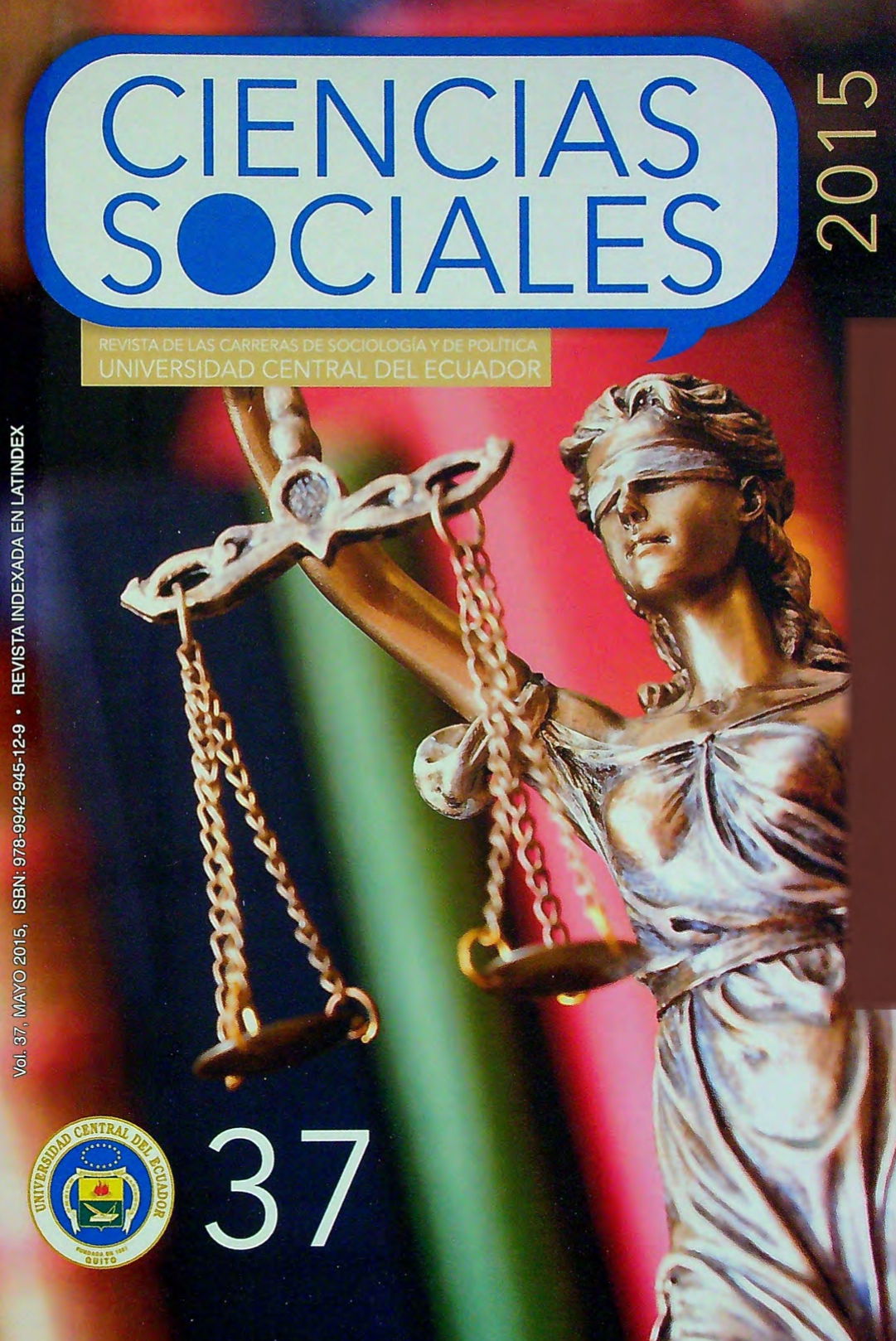De un estado excluyente a un estado intercultural
Parte III
Keywords:
Epistemology, constitutional control, rigid constitution, represenlative democracy, constitutlonal democracy, community democracy, social conflictAbstract
Although they have passed about seven years of existence and validlty of the Constitution of !he Republic of Ecuador we can not yel dare to say that the law is equal validity with its sociological validity. On leading lnstitutions having their statements in accordance with the constilulional movement neo that left its mark on almosl ali constitulions in Latín America there is a high dose of disbelíef in a broad sector of political and academic opinion still reluctant to find the desired transformation the foundations on which our rule of law is based.One of !hose píllars that collects new constitulíonal neo charge of the constitution has to do with the lssue of multiculturalism and legal pluralism, principies upon which the ordinary and indigenous justice as two complementary sources of independent law is built and hierarchically homogeneous. Multiculturalisrn as the suprema ideal hasits pitfalls in the constitutional and legal rules themselves resistan! to accept a theoretical construct law that requires genuine participation of ali peoples and nationalities that make up our soclety in the establishment, structure of ali state institutionsand the obiigatory presence they should have in the design and implementation of publíc policies that go beyond the mere discursive level.
Downloads
References
Ciaramelli, F. (2009). Instituciones y normas, Sociedad global y filosofía del derecho. Madrid: Editorial Trotta
Ayala Mora, E. (2002). Justicia Indígenas. In J. Salgado, lnterculturalídad, Reformas constitucionales y pluralismo jurídico. Quito: ABYA·YALA.
Malo González, C. {2008). Justicia indígena, Cultura e lnterculturalidad.
CONAIE. (2008). Estructura legal de los sistemas jurídicos de los Pueblos y Nacionalidades Kichwa del Ecuador. Quito: Editorial Conaie.
Yuquilema, V. (n.d.). Justicia indígena en la Comunidad de Pulacate. Tesina para obtener el título de Abogada en la Universidad de las Américas. Quito.
Sánchez Botero, E. (2008). Principios básicos y formas de funcionamiento de la justicia que se imparte entre los paeces y los wayú como forma cultural adecuada, legítima y viable para resolver conflictos y coaccionar a sus sociedades particulares. In R. Huber, Hacia sistemas jurídicos plurales, Reflexiones y experiencias de coordinación entre el derecho estatal y el derecho indígena (pp. 119-142). Bogotá: Konrad Adenauer.
Carlos Pérez. (2010). Justicia Indígena. Cuenca : Editorial CONAIE.
ECUARUNARI. (2008). Estructura legal y sistemas jurídicos de los Pueblos de la Nacionalidad Kichwa del Ecuador. Quito: Ecuarunarl.
Cruz, E. (2008). Principios generales del derecho indígena. In J. M. Rudolf Huber, Hacia sistemas jurídicos plurales, Reflexiones y experiencias de coordinación entre el derecho estatal y el derecho indígena. Bogotá: Fundación. Konrad Adenauer Stiftung.
Estermann, J. (2008). Si el sur fiera el Norteq. Quito: Abya-Yala
Tibán, L. (2010). Estado lntercultural Plurinacional y Derechos Colectivos en el Ecuador. Quito: Editorial Pachaco.
Guerrero Arias, P. (2011). lnterculturalidad y plurinacionalidad, escenarios de lucha de sentidos: entre la usurpación y la insurgencia simbólica. In A. Kowii, lnterculturalidad y Diversidad (pp. 71-101 ). Quito: Corporación Editora Nacional.
Llasag, R. (2001). La jurisdicción indígena en el contexto de los principios de pluriculturalidad e interculturalidad en La Nueva Constitución del Ecuador, Estado, derechos e instituciones. Quito.
Souza, B. d. (2011). Perspectiva desde una epistemología del Sur. Quito: Abya-Yala.
Borrara García, C. ¿ Mulliculturismo o lnterculturalidad? In D. Carrillo, & S. (. Patarroyo, Derecho, lnterculturalidad y Resistencia Étnica.
Downloads
Published
How to Cite
Issue
Section
License

This work is licensed under a Creative Commons Attribution-NonCommercial 4.0 International License.
Política de acceso abierto
La revista Ciencias Sociales adhiere al modelo Acceso Abierto en el que los contenidos de las publicaciones científicas se encuentran disponibles a texto completo libre y gratuito en Internet, sin embargos temporales, y cuyos costos de producción editorial no son transferidos a los/las autores/as.
En ese sentido, no existe costo alguno para los/as autores/as en el envío o durante el proceso editorial, defendiendo el derecho a la información con equidad e iguales oportunidades de acceso.
Licencia y derechos de autor/a
Los autores conservan todos los derechos de publicación del artículo y conceden a la Revista Ciencias Sociales una licencia no exclusiva, intrasferible y sin regalías por duración ilimitada para su reproducción, distribución y comunicación pública a nivel mundial bajo una Licencia Creative Commons Atribución 4.0 Internacional (CC BY NC 4.0)


